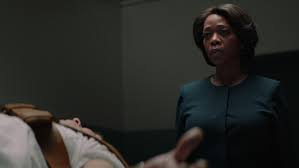Netflix goes back to fairytale romances, the price and the poor girl in this odd little number filmed in Dunedin and Oamaru, New Zealand which are pretending to be the Bronx and some exotic land called Lavania.
Izzy is an Italian hairdresser in the Bronx who by mistake gets to cut the hair of Prince Thomas of Lavania and is then hired with her two bffs Destiny and Lola to do the hair at the prince’s upcoming arranged marriage.
You guessed it! They all end up in Lavania and Izzy and Thomas fall in love.
Cliché upon cliché there is little that is realistic here – simply an update of old fairytales.
Izzy has a definite Emily in Paris vibe believing she can bring compassion and change to a country she doesn’t know with her feisty determination which ignores the feelings of everyone around her.
For her, the children in Lavania are victims that need to be cheered up and saved! There are many other stereotypical figures from the batty Italian gran to the butler with a stern exterior and a rebel heart. All very simplistic.
Hordes of Kiwi actors put on fake accents and Larnach Castle in Dunedin gets to play the royal palace in Lavania.
Laura Marano is okay in a Disney version of Emily way. God, I miss her French boss Sophie who would cut her down in one second flat. Mena Massoud did what he could with Thomas and really the only ones to come out of this with some credit are
Cameron Rhodes as the butler and Jacque Drew as the overbearing bourgeois future monster-in.-law.
Plus the 2 bffs whose comic routine grew on me. The rest was a sugary artifice. I wish NZ would lend itself to better things than this. Loads of continuity and credibility problems too!
1 star plus






























































































